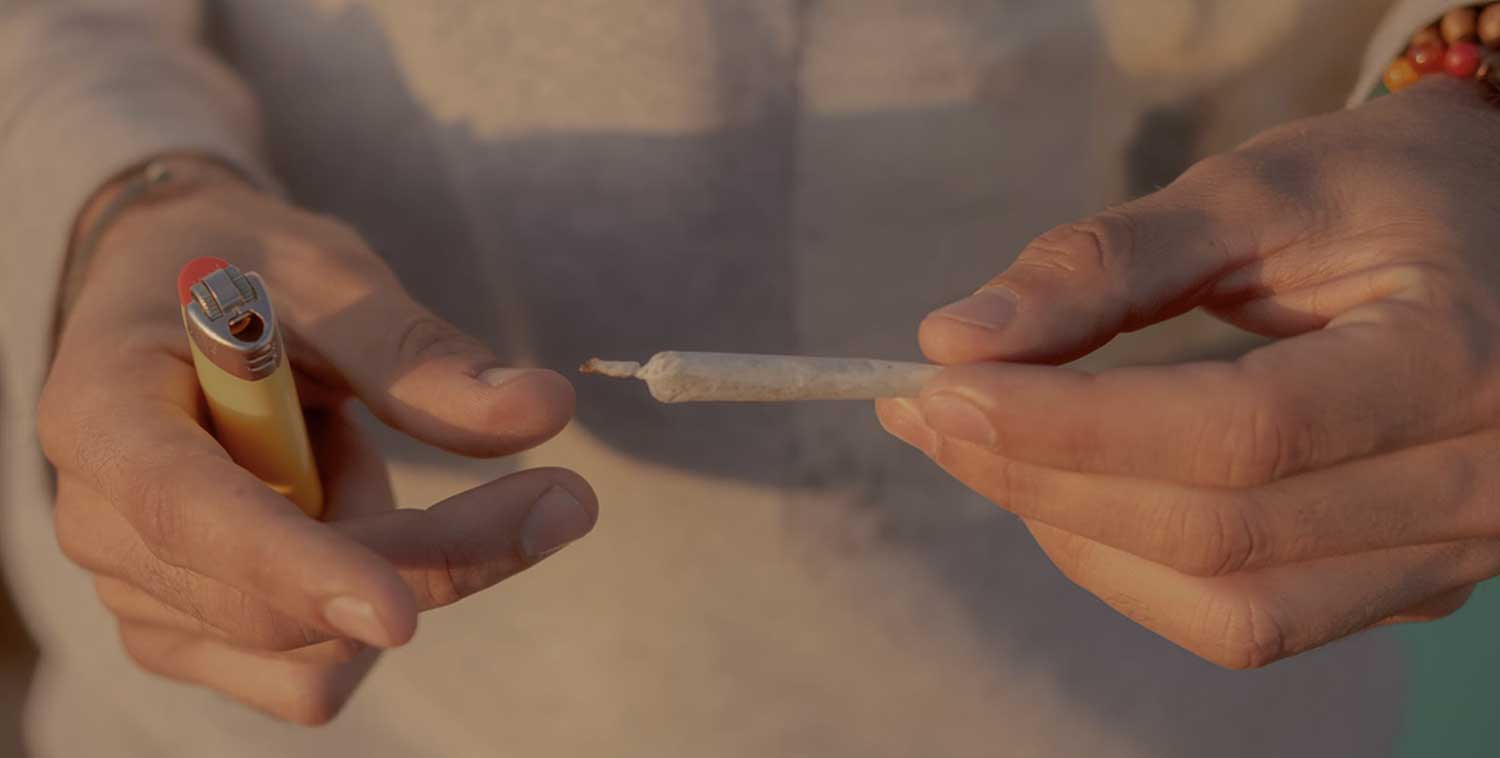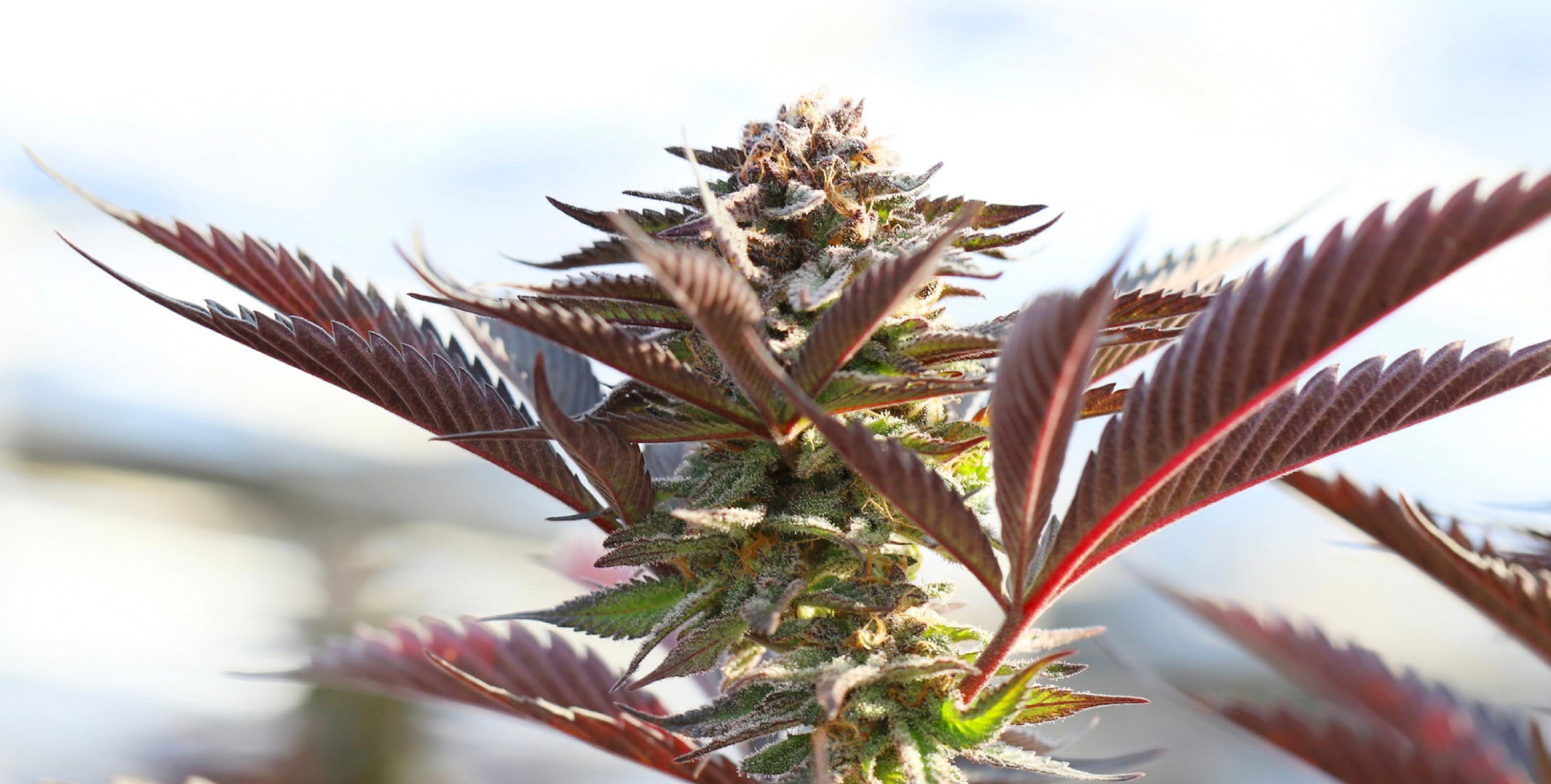by Sugar Team August 05, 2022 6 min read


Weed can be enjoyed in various different ways such as smoking, vaping, eating, and brewing. While it is less habit-forming than other substances, people can grow a dependence on weed.
If you feel that your life is being negatively impacted by your dependence on weed, it might be time to reassess your relationship with it. Be warned, even though weed is not as physically addictive as other substances, it can be tricky to quit smoking weed.
In this guide, we go over the reasons why you might want to quit smoking weed and steps you can take to stop smoking weed.

Tetrahydrocannabidol (THC) is the primary psychoactive compound found in cannabis that affects parts of the user’s brain that controls mood, concentration, memories, coordination, and thinking.
In low doses, people use marijuana to get feelings of euphoria, pain relief, sedation, and a heightened sense of taste/smell/touch that could lead to increased appetite. These are short-term effects that generally wear off within a few hours.
The effects of cannabis can usually be felt within 5 to 15 minutes when you smoke weed. However, when you ingest it, it can take one or two hours to feel the effects and could last up to 24 hours. It is also harder to control the amount and effects of cannabis enjoyed as edibles.

You may experience some unpleasant potential side-effects of enjoying cannabis which include dry mouth and eyes, nausea, fatigue/drowsiness, increased heart rate, increased anxiety or paranoia, impaired ability to focus, decreased coordination, hallucinations, and impaired memory.
These side-effects aren’t particularly dangerous, but could be unpleasant, especially when cannabis is taken in large doses.

Once the brain adapts and gets used to chronic cannabis consumption, it can become very challenging to quit. Your brain can become dependent on the immediate relief it provides and you might continue to abuse it even though you might be experiencing negative effects.
When the downside of smoking marijuana far outweighs the benefits, it might be time to consider quitting.

Quitting cannabis can have very positive effects to your life including increased energy levels and motivation, increased health, a more balanced and positive mood, improved cognitive functions, and improved mental health and susceptibility to mental health illnesses.
If smoking weed has affected your work, relationships, and family, then you should see immediate benefits once you quit smoking marijuana. Some people may choose to cut down to a point where it no longer poses a problem to their every day life. Remember, balance is the key!

You can always attempt to quit weed cold turkey, however, for long-time users this can be an unpleasant experience due to withdrawal symptoms.
For those who pursue quitting cold turkey, you can see positive results right away, however, it is always recommended that if you wish to quit smoking marijuana cold turkey, you do it in a safe, medical detox setting.

Withdrawal symptoms can be intense for long time users, tapering is a more viable option than quitting cold turkey. Tapering is a gradual process of reducing the amount or frequency of smoking cannabis.
This helps your body adapt to smaller and smaller doses until it is free of any dependency. In contrast to quitting cold turkey, this might be the more favorable solution for long term users.

Setting a time frame and committing to it will help you in tapering marijuana use. Setting a goal of a few weeks to a month is helpful in keeping yourself accountable. Make sure this goal and timeline to quit marijuana is realistic for you.

Engaging in other activities that distract you from any cravings is also extremely beneficial, such as exercising, socializing, or picking up an old hobby. These steps will lengthen the time between when you smoke weed and provide distraction, making it easier for you to quit marijuana.
Avoid drug use and alcohol abuse as this can be counter-productive, and/or lead you down a worse path.

What does withdrawal look like? Withdrawal symptoms could include mood changes, headaches, insomnia, depression, or sweating. They generally can occur once you stop marijuana use.
Cannabis withdrawal symptoms could be difficult to overcome and lead to a relapse, so it is important to have an alternative plan in place in case any withdrawal symptoms become too intense.
Arm yourself with the knowledge of what potential symptoms are and understand that these symptoms pass. This will help you become mentally prepared and aid you to stop smoking weed.

Quitting marijuana use requires a lot of effort and discipline, so be prepared. To stay on track and disciplined, creating a reward system for yourself that does not include weed or another substance can be very beneficial.
Breaking a habit is difficult for everyone. Keep that in mind, and stay focused on your goal of quitting smoking marijuana!

Whether you decide to quit cold turkey or taper your use down, below we will highlight some tips and tricks that have proven to be helpful in quitting marijuana use.

Understand your triggers that make you want to smoke weed and learn to avoid them. Examine yourself and your lifestyle for any triggers that might cause you to crave smoking weed. Whether it’s a specific time of day or stress factors that trigger your craving, take note and develop a plan to deal with your craving or a way to avoid those triggers.

When you start craving weed, try distracting your mind from it with activities that won't trigger your craving.
Delaying when you allow yourself to satisfy your urges will allow your urges to taper off in intensity as well. Stay focused, self-aware, and disciplined and your cravings can be overcome.

Physical activity can boost your mood and restore healthy brain function which will decrease your withdrawal symptoms and help curb your cravings. Even small amounts of exercise can dramatically improve your mental health and make it easier for you to control your cravings.
As you progress, be mindful of your progress, avoid or mitigate sources of stress, eat, and sleep well. These will all contribute to avoiding a relapse and help you in your journey to quit smoking weed.

Build a support system that will help you accomplish your goal to stop smoking weed. If you find it impossible to keep yourself accountable, it is always good to develop a support system where your friends and family will keep you accountable.
Supportive friends and family members can make the experience much easier and keep you on track in your quest to quit smoking weed.

Seek professional help by calling your doctor or a drug abuse hotline if you find it impossible to quit marijuana use by yourself. There are always professional resources available including rehabilitation programs that will help you overcome your addiction. Do not feel lost or helpless, you do not need to go through this alone.

CBD cigarettes can be a powerful tool in quitting marijuana. You get many of the beneficial effects such as the calming and pain-relieving nature of marijuana without worrying about the potentially addictive nature of marijuana.

CRÈME hemp cigarettes provide a flavorful, relaxing effect that can be felt instantly just like smoking a joint. While the effects aren’t as intense and don’t produce a high like marijuana, it is an enjoyable experience and a powerful tool to help you break an unhealthy habit.
Remember, you don't always need to quit weed cold turkey. Slowly tapering down may be an option for you by replacing the occasional smoke with an alternative!

by Sugar Team April 10, 2023 7 min read

by Sugar Team March 31, 2023 8 min read

by Sugar Team March 17, 2023 7 min read